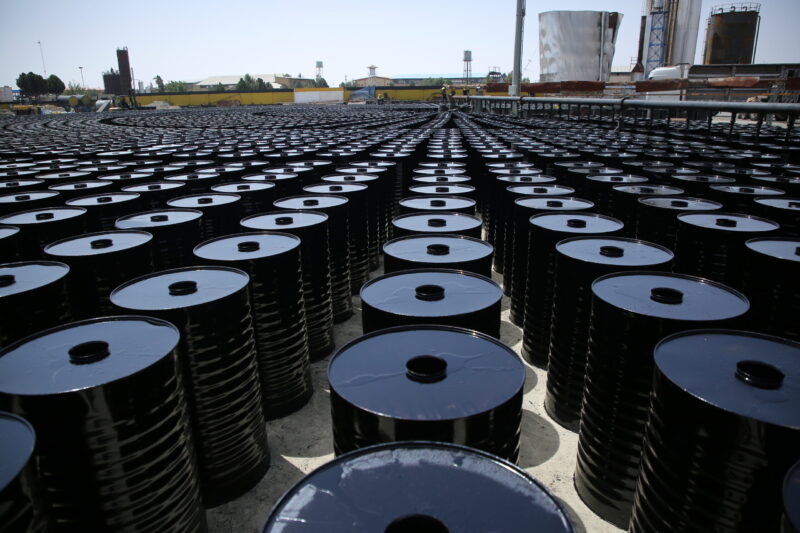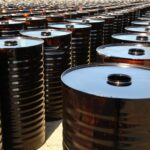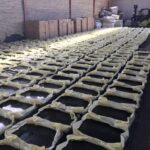🛣️ Applications and Benefits of Penetration Grade Bitumen
Penetration Grade Bitumen is one of the most widely used types of bitumen in the world. It is classified by its hardness or softness, determined by how far a standard needle penetrates the sample under specific conditions. This method of grading, called the Penetration Test, helps in identifying bitumen’s suitability for climate and traffic conditions.
Penetration grades like 30/40, 60/70, 80/100, and others are essential in determining the performance and longevity of asphalt pavements. Let’s explore the practical applications and critical benefits of using penetration grade bitumen in construction and industrial sectors.
🏗️ What is Penetration Grade Bitumen?
Penetration grade bitumen is defined by the depth in tenths of a millimeter that a standard needle penetrates vertically into a bitumen sample at 25°C under 100g load for 5 seconds.
🧪 Common Grades:
-
30/40 – Hard grade; ideal for high-temperature regions
-
60/70 – Standard road construction; balanced hardness and flexibility
-
80/100 – Softer grade; suitable for cold climates
🛠️ Applications of Penetration Grade Bitumen
🛣️ 1. Road Construction
One of the primary applications of Penetration Grade Bitumen is in road construction. It is used as a binder in asphalt mixtures, providing durability and resistance to heavy traffic loads. The high viscosity of Penetration Bitumen helps in creating a strong bond between aggregates, resulting in a long-lasting road surface.
The most common use of Penetration Asphalt Binder is in flexible pavements, where it binds aggregates to form durable asphalt roads. The grade selected depends on climate and traffic conditions.
🏘️ 2. Roofing and Waterproofing
Bitumen’s water-resistant and adhesive properties make it ideal for roof sealing membranes, waterproof barriers, and protection coatings.
Penetration Grade Bitumen is also widely used for waterproofing applications. It forms an impermeable barrier when applied to structures such as roofs, basements, and foundations. This helps prevent water penetration and protects the underlying surfaces from damage caused by moisture.
🏞️ 3. Airport Runways
Penetration grades like 40/50 and 30/40 are used in airfield pavements that must withstand high loads and shear stress.
🧱 4. Asphalt Mixtures and Hot Mix Plants
It’s a key component in hot mix asphalt (HMA), providing the cohesion and durability needed in high-performance surfaces.
Another important use of Penetration Asphalt Binder is in pavement preservation. It can be applied as a sealant on existing asphalt surfaces to extend their lifespan and prevent further deterioration. The penetration properties of the bitumen ensure proper adhesion and fill any cracks or voids, enhancing the structural integrity of the pavement.
🏗️ 5. Industrial Applications
Used in pipe coating, adhesive manufacturing, and dam linings, penetration bitumen supports various industrial infrastructure.
Penetration Grade Bitumen acts as an excellent adhesive and binding agent. It is used in the manufacturing of various products such as roofing felt, pipe coatings, and joint sealants. The adhesive properties of bitumen ensure strong and durable connections, making it an ideal choice for these applications.
📊 Comparison Table – Bitumen Penetration Grades
| Grade | Penetration Value (1/10 mm) | Recommended Use | Climate Suitability |
|---|---|---|---|
| 30/40 | 30–40 | Heavy-duty roads, airport runways | Hot and arid climates |
| 40/50 | 40–50 | Expressways, industrial pavements | Warm climates |
| 60/70 | 60–70 | National highways, city roads | Temperate climates |
| 80/100 | 80–100 | Rural roads, light traffic areas | Cold and snowy regions |
✅ Benefits of Penetration Asphalt Binder
-
🌡️ Climate Adaptability: Different grades match various weather conditions—from cold to tropical.
-
🛠️ Excellent Workability: Easy to mix, spread, and compact with aggregates.
-
🛡️ Waterproofing Properties: Forms impermeable layers, perfect for roofing and sealing.
-
🔄 Versatile Usage: Applied in roads, industrial surfaces, adhesives, and insulation.
-
💰 Cost-Effective: Long lifespan reduces maintenance and replacement costs.
-
🧪 Tested Performance: Standard penetration grading ensures quality and predictability.
In addition to its wide range of applications, Penetration Grade Bitumen offers several key benefits, making it a preferred choice in the construction industry. Some of these benefits include:
- Durability
Penetration Bitumen provides excellent durability, ensuring that the constructed surfaces can withstand heavy traffic, extreme weather conditions, and other environmental factors. This results in longer-lasting and low-maintenance infrastructure.
- Weather Resistance
Bitumen possesses excellent weather resistance properties. It can withstand temperature fluctuations, UV radiation, and moisture, making it an ideal material for outdoor applications. This resistance to weathering helps maintain the integrity and performance of the structures over time.
- Flexibility
Penetration Asphalt Binder exhibits high flexibility, allowing it to adapt to the movement and deformation of the underlying surfaces. This flexibility helps prevent cracks and other forms of damage, ensuring the longevity of the constructed infrastructure.
- Cost-Effectiveness
Using Penetration Bitumen can lead to cost savings in the long run. Its durability and low-maintenance properties reduce the need for frequent repairs and replacements. Additionally, its availability and ease of application contribute to cost-effectiveness in construction projects.
- Environmentally Friendly
Penetration Bitumen is considered environmentally friendly compared to other materials. It is a byproduct of crude oil refining, which reduces the need for additional raw materials. Furthermore, it can be recycled and reused, minimizing waste generation and promoting sustainability.
❓ Frequently Asked Questions (FAQ)– Penetration Grade Bitumen
1. ❔ What does “60/70 penetration grade” mean?
📏 It means the needle penetrates 60 to 70 tenths of a millimeter. It’s a medium-hard bitumen, ideal for road surfacing in temperate regions.
2. ❔ Which grade is best for tropical climates?
🌞 30/40 or 40/50 grades are best for hot climates due to their hard consistency and heat resistance.
3. ❔ Can penetration bitumen be used in waterproofing?
✅ Yes, its adhesive and waterproof properties make it excellent for roofing and damp-proof membranes.
4. ❔ How is penetration grade determined?
🧪 Using the penetrometer test, where a needle is pressed into bitumen at a standardized load, time, and temperature.
5. ❔ What’s the difference between penetration and viscosity grade bitumen?
⚖️ Penetration grade is based on needle penetration, while viscosity grade focuses on flow resistance at specific temperatures.
🏁 Conclusion- Penetration Grade Bitumen
Penetration Grade Bitumen remains a vital material in modern infrastructure. Its versatility, climate adaptability, and well-defined performance standards make it the go-to choice for everything from roads and airports to waterproofing and industrial coating. By selecting the correct grade, engineers can ensure stronger, safer, and longer-lasting pavements.
📣 Call to PARS Universal Bitumen
👉 Need high-quality Penetration Grade Bitumen?
We in Pars Universal Bitumen, supply all major grades like 30/40, 60/70, and 80/100—tested for purity, performance, and consistency.
📞 Contact us today for bulk orders, datasheets, or technical advice!
🌐 Explore Our Bitumen Products → Pars Universal Bitumen: Penetration Grade Bitumen
📧 Email: [email protected]
📞 Phone: +971 4 878 2031
🌐 Visit: Pub-ltd
🛒 Order Penetration Asphalt Binder Today. If You have any other Query or Question you want to ask, Please don’t hesitate to Contact Us.





